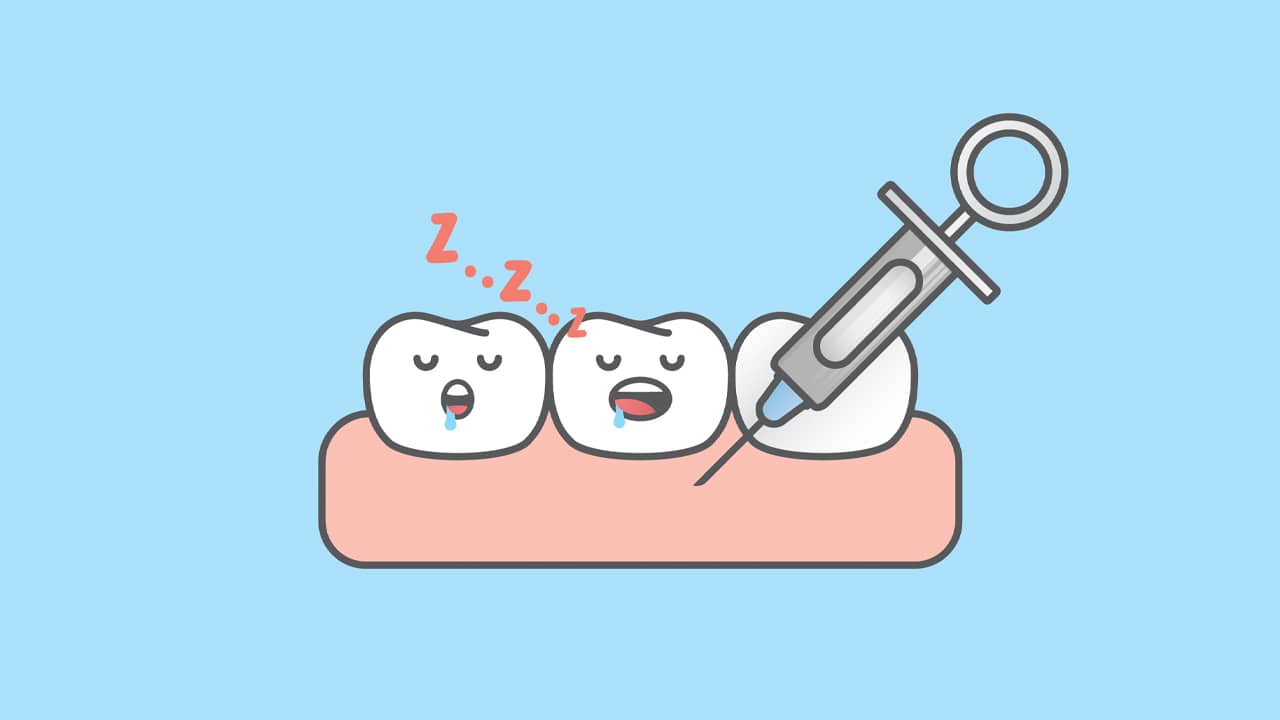
When visiting your dentist for a dental procedure, sometimes a sedative can help ease dental anxiety, an obstacle for some patients’ oral health care. Some drugs help you relax, while others place you in a deep sleep state until the procedure is complete. Your dentist can discuss the best option with you concerning your procedure and comfort level. Some factors to consider will be your anxiety level, a history of allergies, and what type of procedure you need.
Is Dental Anesthesia Safe?
The risks associated with dental anesthesia are extremely low. At Caputo Dental, a trained ER/ICU nurse oversees your recovery period, and an experienced anesthesiologist administers the general anesthetic. Skilled professionals frequently see patients with serious health complications safely through a procedure under anesthesia, so healthy individuals’ risks are minimal.
What Are the Two Kinds of Anesthesia?
Dentists commonly recommend one of two types of anesthesia for specific dental procedures. These are local and general anesthetic. Local anesthesia is injected or topically applied to a particular area of the face or mouth and numbs any sensation temporarily, without causing a loss of consciousness.
General anesthesia sedates you for a prolonged period, so you remain unconscious throughout the procedure and require a breathing tube. General anesthesia must be administered by a trained professional, while your dentist can administer a local anesthetic themselves.
While local anesthetic is used most frequently at a dental practice for simple procedures like composite fillings or a routine extraction, general anesthesia is necessary for complex processes, such as removing impacted wisdom teeth.
Deep sedatives are different from anesthesia and may provide another option for relief during procedures. Deep sedation is a depression of consciousness rather than a loss of consciousness, so while you’re not easily awakened, you can still respond to repetitive stimulation.
How Long Does Each Type of Anesthesia Last?
A typical dental local anesthetic will last anywhere from two to five hours, depending on how much your dentist applied for the procedure. The local anesthetic effects wear off gradually, with feeling slowly returning to the area in the hours after your procedure.
A dentist can administer a deep sedative in three ways: as a gas (nitrous oxide), you breathe in through a mask, a pill that you take orally, or intravenously. The duration of effects you’ll experience depends on which method is used to administer your anesthesia. If given gas via a mask, the effects fade as soon as the gas supply stops, but you may still experience disorientation for a few hours after the procedure.
With a general anesthetic administered intravenously, it might take you up to 45 minutes after the IV catheter is removed for you to wake up and be fully aware. Depending on your age, health, and the amount of anesthesia you received, it might take you up to 24 hours to feel fully coherent and regain mental clarity.
Following a procedure under general anesthesia, a responsible adult should be present to accompany you home since you cannot drive and supervise you for the first 24 hours after surgery.
Talk to Your Dentist About What’s Best for You
Before any dental procedure, minor or significant, talk to your dentist about sedation and anesthesia options so you can ensure you feel comfortable heading into your appointment. Call us today at Caputo Dentistry to book a consultation and find out which option is suitable for your dental procedure.